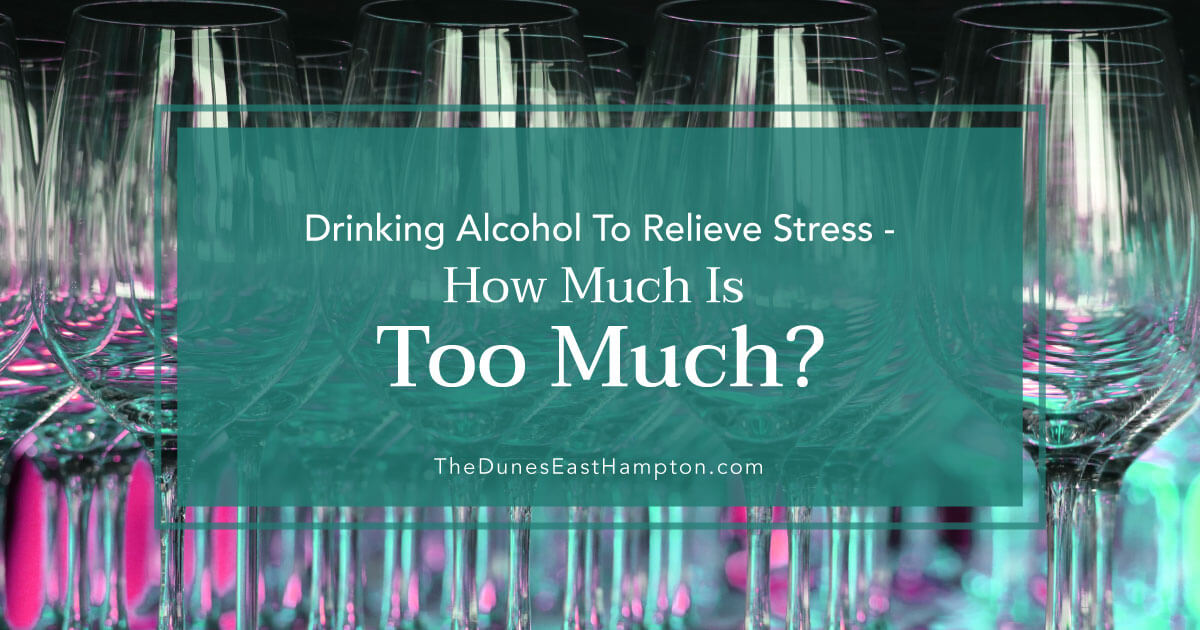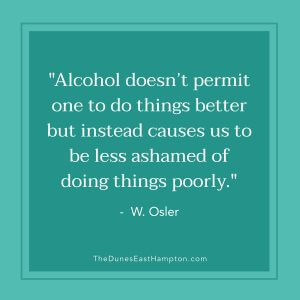
Alcohol may provide a temporary escape from stress, but the long-term effects of stress drinking increase anxiety. Eventually, a person who uses alcohol to manage stress will require alcohol just to keep anxiety at bay.
How Stress and Alcohol Interact
Alcohol is a depressant that slows the central nervous system’s processing and other brain functions. When a person drinks alcohol with high levels of stress hormones in his or her bloodstream, the alcohol may provide temporary relief, but it doesn’t help the body flush the stress hormones naturally.
Mixing stress and alcohol also leads to the following symptoms:
- Over time, alcohol use alters brain chemistry and other bodily functions. These issues cause more stress, increasing the desire for alcohol.
- Over an extended period, stress, anxiety and depression from alcohol abuse gradually build. This makes it very difficult for many people to realize the compounding effect alcohol has on their stress levels, and the alcohol use progresses into a full-blown problem.
- Increased anxiety levels typically cause blood pressure to rise, and this can pose several significant health risks for people at this stage of alcoholism.
How Does Alcohol Affect Blood Pressure?
Since alcohol can cause stress and anxiety to build up over time, the responses to stress gradually escalate as well.
Without alcohol, people who have grown dependent on drinking to stave off anxiety attacks and stress suddenly have no coping mechanism. This can lead to serious panic and anxiety attacks, intense mood swings and outbursts, or other manifestations. Panic attacks and heightened anxiety levels often increase blood pressure and heart rate.
When this cycle repeats for an extended time, those who experience alcohol-related stress episodes often have trouble with their blood pressure.
Alcohol Withdrawal and Blood Pressure
Withdrawal is the period during which the body adjusts to the lack of an addictive substance. Some drugs lead to more significant withdrawal symptoms than others, but substance abuse professionals generally agree that alcohol withdrawal is the most unpleasant and dangerous.
Even people who stop a moderate drinking habit, such as one or two drinks every day for more than one year, will notice the effects of withdrawal soon after their last drink.
Over time, repeated spikes in blood pressure can cause permanent blood pressure issues and increase the likelihood of a heart attack. Alcohol abuse carries significant effects that gradually escalate over time, so withdrawal is going to be much more unpleasant and last longer for people with advanced alcoholism. Either way, stress and anxiety remain significant symptoms for anyone in alcohol withdrawal.
Long-Term Anxieties
Alcohol withdrawal’s symptoms typically last several days or more depending on the severity of the drinking problem. However, people who have been sober for months or even years still report that the strongest cravings for alcohol occur during periods of acute stress and anxiety.
Whenever a person gets in the habit of treating stress with alcohol, they create a vicious cycle that grows harder to break the longer it lasts. Long-term alcohol use, even mild regular use, creates dependency and prevents people from forming healthy coping and stress-management techniques.
Avoiding Alcohol Addiction
Since regular use is what causes the body to become dependent on alcohol, even in relatively small amounts, it’s advisable to keep drinking to an occasional indulgence, if at all. It’s also a good idea not to use alcohol in times of stress, because it’s easy for this to become a default coping mechanism.
Instead, find healthy, non-addictive, and holistic approach to manage stress on a regular basis, such as:
- Exercise
- Yoga
- Meditation
- Sports
- Reading
- Any healthy recreational activity that brings you relief
Also, make it a priority to look for ways to remove sources of stress from your life. These days, most Americans have come to accept stress as a normal part of daily life, and so they don’t bother to question if there are ways to reduce their stress level.
However, if you work at it, it’s often possible to reduce your workload, move out deadlines and shift your focus to higher-value activities. You can also cut ties with “energy vampires” – people who bring negativity, drama and stress into your life.
Seeking Treatment
For those who are already caught up in the habit of alcohol consumption, it’s possible to get the help you need to overcome addiction without sacrificing lifestyle.
Most people imagine very sterile and clinical settings when they hear the word “rehab,” but The Dunes East Hampton offers something else entirely. Our addiction treatment specialists provides an unparalleled luxury rehab experience for our clients in a rejuvenating atmosphere.
Breaking the cycle of stress and alcohol abuse requires much more than just detox and a 12-step program. Learning new coping strategies and healthy stress-relief techniques are vital to living a healthy and sober lifestyle after rehab.








